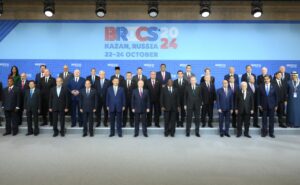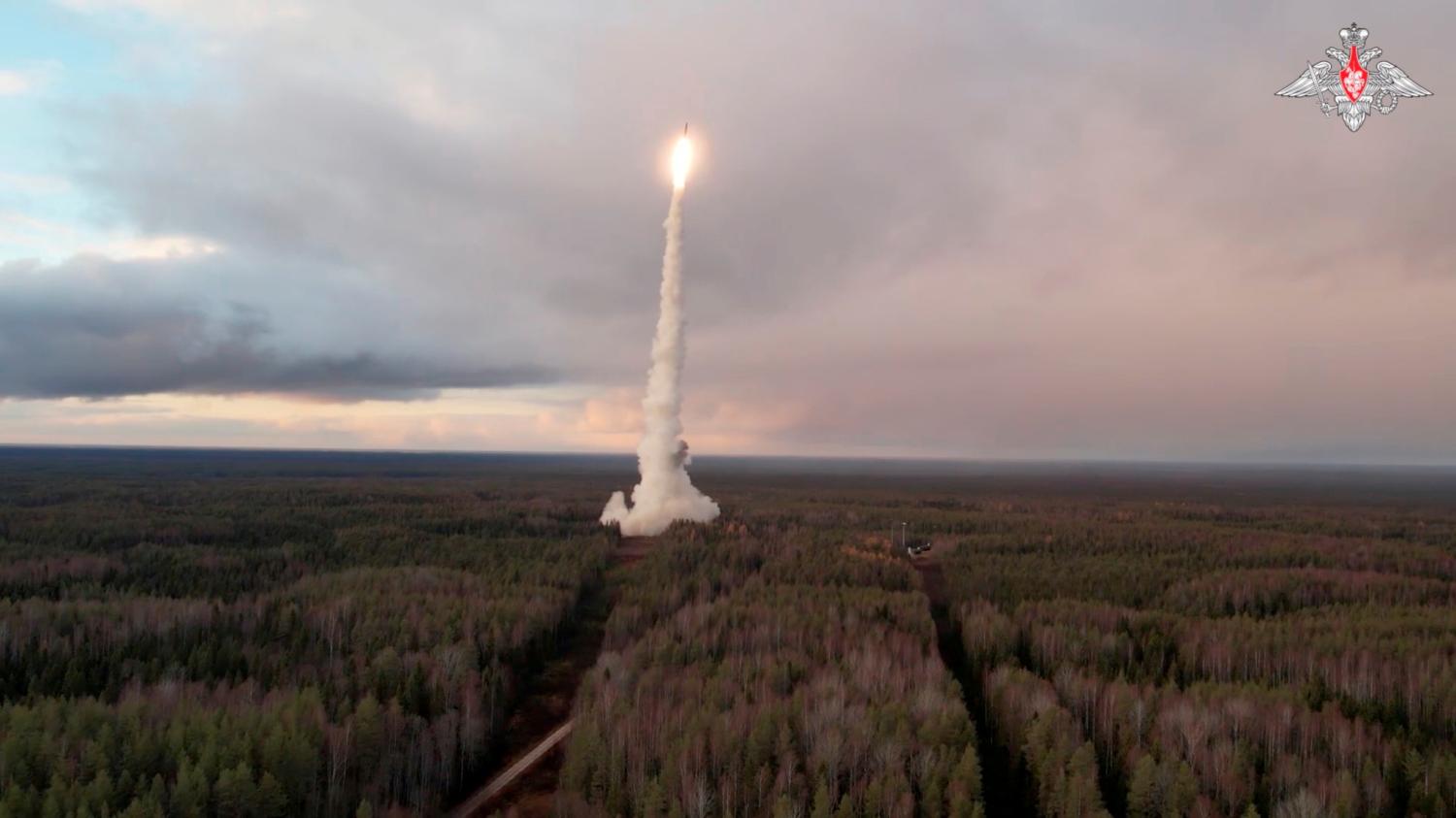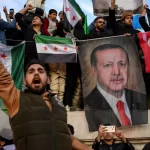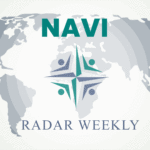Subscribe to NAVI Radar Weekly here
Focus Point: Regional Security- Transatlantic Security/NATO
The US Elections and the Future of NATO: A Scenario Analysis | Clingendael
By Dick Zandee and Roman de Baedts| 10.11.2024
The NATO Washington Summit in July 2024 demonstrated unity on important issues like the support for Ukraine, the strengthening of the Alliance’s deterrence and defence posture, the Russian threat and the challenges posed by China. Yet, on the road to the next NATO Summit in June 2025 in The Hague many obstacles could appear, quickly turning the positive tone into a dissonance. As the United States is the most important Ally and its commitment to the security of Europe is regarded as a key factor of NATO’s credibility in collective defence, the outcome of the US presidential elections on 5 November 2024 will have a great impact on the future of the Alliance.
As the consequences resulting from the US presidential elections on the Alliance and on European security may be very different, it is hard to draw a clear conclusion before 5 November or even early 2025 when the new President will enter the White House. Depicting a set of possible scenarios might help to gain more insight on the impact of the 2024 US elections, depending on who will occupy the Oval Office and which security policy may be pursued by Washington. A scenario analysis may also assist Allies in their preparations to react to the outcome of US elections and, therefore, in NATO’s agenda-setting for the next Summit in The Hague in June 2025.
• Scenario 1 – Better burden-sharing
• Scenario 2 – Transactional security
• Scenario 3 – Partial US disengagement
• Scenario 4 – US leaving NATO Read more…
Focus Point: Emerging Technologies & Data- Standards
NATO Allies Take Stock of Progress on Digital Initiatives | NATO
By NATO |12-13.11.2024
To advance NATO’s digital transformation, the Digital Policy Committee met at NATO Headquarters for its Autumn Plenary on 12 and 13 November 2024, with a focus on implementation of digital strategies that will shape the future of the NATO Alliance.
As NATO’s senior advisory body for Consultation, Command and Control (C3) overseeing the integrated use of NATO digital initiatives, the Digital Policy Committee drives the Alliance’s digital transformation process by offering strategic guidance to the North Atlantic Council (NAC), the Military Committee, and other NATO entities, so that NATO remains on the cutting edge of digital defence, cyber resilience, and technological interoperability. The meeting this week was chaired by NATO’s Assistant Secretary General for Defence Investment, Tarja Jaakkola. Read more…
Focus Point: Security and Defense Policy- Russia-Ukraine War
North Korea Approves Deal With Moscow That Allows Troop Deployment | RFERL
By RFE/RL’s Russian Service | 12.11.2024
North Korea has ratified a “comprehensive strategic partnership” agreement with Russia, cementing a deal that has paved the way for its soldiers to fight on Russian soil against Ukraine.
North Korea’s state-controlled news agency KCNA said on November 12 that the deal, which was agreed between Moscow and Pyongyang in June, will take full effect once both sides exchange ratified copies of the agreement.
According to reports from South Korea’s Yonhap news agency, Russian President Vladimir Putin has already signed the documents.
The deployment of North Korean troops in Russia’s Kursk region, which has been confirmed by U.S., NATO, South Korean, and Ukrainian intelligence, has raised concerns that it will further destabilize the Asia-Pacific region and broaden Moscow’s war on Ukraine. Read more…
Focus Point: Security and Defense Policy- Russia-Ukraine War
NATO May Deploy Troops to Ukraine if Donald Trump Cuts Support: Ex-UK PM | Newsweek
By Ellie Cook |13.11.2024
A Former U.K. Prime Minister said that the country may need to send troops to Ukraine if newly reelected President Donald Trump reduces U.S. funding or military support for the Ukrainians.
Trump staffers’ purported plan to end the war in Ukraine involves freezing all conflict at the front lines. In creating an 800-mile Demilitarized Zone, the U.S. would not send troops to keep charge of it, nor pay for it. Trump has also previously criticized NATO and discussed withdrawing the U.S. from the alliance, which coordinates “the delivery of aid from allies and partners to Ukraine.”
Johnson said: “What I’m saying is for people watching, thinking why are we supporting the Ukrainians? It’s because otherwise our collective security will be really degraded by a resurgent Russia threatening all sorts of parts of Europe.”
Describing this scenario, Johnson added: “We will then have to pay to send British troops to help defend Ukraine.”
Another British politician, member of Parliament and leader of the political party Liberal Democrats Ed Davey, also recently spoke about his concerns regarding Trump’s continued support of Ukraine.
Davey echoed Johnson’s statements and said, “We can’t simply abandon Ukraine to Putin just because Trump’s in power. We’ve been playing a critical role, and I think we could play an even more critical role by working with European friends, bringing together European countries so we can increase the aid to Ukraine, and pay for that by seizing Russian assets properly. We’ve been pushing for that for some time.”
Davey added: “Now is the moment to do it so Europe can fill the gap. But we have got to do it quickly.” Read more…
Focus Point: Regional Security- Transatlantic Security/NATO
Why the BRICS Summit in Kazan should be a Wake-up Call for the EU | EGMONT
By Reinhold Brender | 13.11.2024

This policy brief examines the growing influence of the BRICS in a multipolar world, as highlighted by their recent summit in Kazan, Russia, and the challenges to effective global multilateralism. Originally comprising Brazil, Russia, India, China, and later South Africa, the BRICS have recently expanded to include Ethiopia, Egypt, the UAE, and Iran. All BRICS members seek to reshape global governance to provide a greater voice for the Global South and strengthen South-South cooperation.
However, internal divisions persist: China, Russia, and Iran view the BRICS as a platform to counter Western influence, while India, Brazil, and South Africa pursue ‘multi-alignment’ to diversify their global partnerships.
This brief argues that, given the urgency of pressing global challenges, the EU should take the Kazan Summit as a wake-up call to develop and implement a strategy for engaging the Global South in the much-needed reform of global multilateralism. This effort is essential despite the reelection of Donald Trump as US President. Read more…
Focus Point: Security and Defense Policy- Emerging Threats and Global Risks
How credible is Russia’s Evolving Nuclear Doctrine? | Brookings
By Steven Pifer | 14.11.2024

Russia’s doctrine for the use of nuclear weapons has gone through several evolutions over the past 15 years. Changes in 2010 and 2020 seemed relatively benign. In September 2024, Russian President Vladimir Putin announced additional modifications, which appear more meaningful.
These recent modifications were made while Western officials debated whether to allow Ukraine to use Western weapons to conduct strikes into Russian territory.
They introduce ambiguity on when Russia might employ nuclear arms in a bid to persuade the West to stand down. But those modifications may well stretch Russian declaratory policy beyond the point of credibility. Read more…
Focus Point: Security and Defense Policy- Great Power Competition
Denial Without Disaster—Keeping a U.S.-China Conflict over Taiwan Under the Nuclear Threshold | RAND
By Dahlia Anne Goldfeld, Nathan Beauchamp-Mustafaga, et al.| 15.11.2024
Chinese Communist Party General Secretary Xi Jinping’s reported order to the Chinese military to be prepared to invade Taiwan by 2027 and China’s ongoing nuclear buildup have raised U.S. concerns over the prospect of a U.S.-China conflict. A conflict with China would be distinct from the wars the United States has fought in the post–Cold War period against regional powers without nuclear weapons. This report summarizes a series of reports on how U.S. joint long-range strike, especially the U.S. Air Force’s bomber force, could adapt to better balance military operational effectiveness, force survivability, and escalation management to achieve desired military and political objectives without triggering catastrophic escalation, specifically Chinese nuclear first use.
This report is the product of a mixed-methods research approach that combined regional studies, analytic strategic theory, and historical case studies, all informed by operational analysis. The authors (1) conducted original Chinese-language research leveraging open-source Chinese military writings; (2) supplemented the limited information available from open-source Chinese military writings with historical case studies and a broad review of analytic strategic theory dating back to early RAND work in the 1950s, along with a literature review of Western scholarship on China; (3) reviewed publicly available U.S. Department of Defense documents and recent non-U.S. government wargames; and (4) developed an analytic framework that linked China’s nuclear escalation with specific technical or employment characteristics of U.S. joint long-range strike.
Key Findings
• If fully committed to fighting and winning a war with China, the United States must be prepared for nuclear escalation and place more emphasis on managing these risks.
• China’s nuclear threshold is unclear but also likely movable, meaning that the United States has an opportunity to make the threshold better (but also risks making it worse).
• There will likely be trade-offs among military operational utility, force survivability, and escalation management.
• The single most influential factor under U.S. military control for managing escalation is target selection.
• Munitions can have a direct impact on the U.S. military’s ability to manage escalation.
Recommendations
• Prioritize development of a robust denial capability to minimize the need for kinetic strikes on mainland China and to reduce the risk of nuclear escalation.
• Build a portfolio of U.S. joint long-range strike force structures, postures, and capabilities to execute war plans across various possible mainland strike authorizations.
• Ensure the ability to prosecute a variety of targeting plans that can help balance operational effectiveness, force survivability, and escalation management.
• Manage Chinese perceptions of long-range strike before and during a war.
• Incorporate considerations of escalation risk into the acquisition process, especially for systems that are likely to appear highly escalatory to Chinese leadership.
• Establish an Escalation Management Center of Excellence at the U.S. Air Force Global Strike Command both to train senior and junior personnel and to have a dedicated organizational structure through which escalation risks can be weighed during peacetime force development.
• Avoid making U.S. long-range strike capabilities an attractive target for a limited Chinese nuclear strike.
• Avoid long-range strike missions that could accidentally or inadvertently engage a nuclear armed third-party, such as Russia or North Korea.
• Avoid extemporaneous responses to dangerous moments by preparing communication strategies and responses to Chinese nuclear signaling or use ahead of time.
• Avoid peacetime training of conventional missions that appear most likely to trigger Chinese nuclear use, such as large-scale cost-imposition, leadership decapitation, or counterforce. Read more…
Focus Point: Regional Security- Transatlantic Security
Putin Issues Ultimatum to NATO Leader | Newsweek
By Brendan Cole |16.11.2024
Vladimir Putin has said that NATO should accept “new territorial realities” ahead of any talks to end the war he started, during a phone call with German Chancellor Olaf Scholz that has sparked concern from Kyiv.
In the first call between the leaders since December 2022, Putin repeated Kremlin rhetoric that the “current crisis” was caused by “many years of aggressive NATO policy aimed at creating an anti-Russian bridgehead on Ukrainian territory,” according to a Kremlin readout.
An unnamed Western diplomat told Reuters that the phone call “sends a bad signal especially after Trump’s election,” referring to the U.S. president-elect’s disdain for further Washington aid and his call for an end to the war.
The unnamed diplomat said that Scholz might present the call to his electorate to show that “Putin isn’t open to anything.” Read more…
Thank you very much for reading.
The NAVI Research Institute is the research division of NATO Veterans Initiative - NAVI that provides a unique perspective to transatlantic leaders and societies on peace and security through the lens of NATO's founding principles of rule of law, democracy, human rights, and individual liberties. The NAVI Research Institute was officially established by the NAVI Board on July 16th, 2023.

![NAVI-PROJE-[Recovered] Radar Weekly](https://nato-veterans.org/wp-content/uploads/2024/05/NAVI-PROJE-Recovered-696x392.gif)


